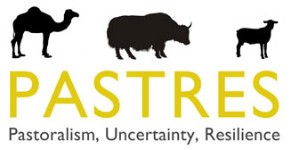As a previous blog showed, pastoralism across the Mediterranean regions of Europe has undergone immense changes in recent decades. Rural out-migration, particularly of young people, is changing the labour profiles of shepherds and herders across Italy, France and Spain. Migrant workers are filling the gap, coming from Albania, Romania, Macedonia and other countries across the Balkans in particular, but also from the Maghreb, and from countries such as Morocco.
Only with their skills can pastoral production survive. They bring with them new traditions and cultures, as well as production techniques, but at the same time help sustain the social and cultural practices of pastoralism in the montane and Mediterranean regions. This allows certain products – such as regional cheeses – to continue to be produced, and ensures that certain environmental management practices – such as transhumant movements of livestock – are retained, sustaining pastoral landscapes for wider uses, such as tourism.
In a recent article, Michele Nori, co-investigator on the PASTRES project, relates the story of Vullnet Alushani who immigrated to Italy from Albania in 1999:
“There, he began working for the Bramante, a traditional Gargano Podolico Caciocavallo producer in the Apulia region. Caciocavallo is one of the special Slow Food cheeses made from the milk of Podolica cows – a breed once common throughout most of mainland Italy. The breed is now restricted to some regions in Southern Italy. It didn’t take long for Vullnet to learn and master the skills needed to produce Podolico Caciocavallo. He is not only appreciated for his extraordinary cheeses but also for his contribution to carrying on the tradition of the Bramante family.”
Labour is well organised, and based on migrant networks stretching across Europe and beyond. Fiorino, a Romanian shepherd (quoted in the article) explains:
“We are organised and upon demand we can seek for more workers from our networks, mostly in our villages in north-eastern Romania. There, everybody used to keep sheep. Most households produced their own cheese; that is where we have learnt. We know how to deal with sheep.”
Migration has always been central to pastoralism in Europe and beyond. For example, in the twentieth century, Sardinians moved to abandoned pasturelands in central Italy, while Piedmont’s shepherds went to work in the French Provence and southern Spanish herders migrated to graze the Pyrenees, and Valach and Arvanite shepherds moved throughout Greece.
Such free and flexible movement of labour in order to support a key European industry is a central tenet of the European Union’s policy. But it is not without tensions. Migrant shepherds come from very different cultures often with different religious backgrounds, and they may not integrate easily into rural settings elsewhere. Working conditions are often poor, with such migrants offered limited rights. Salaries are remitted home, but often these are low and inadequate.
As the article explains, migrants often need to acquire new skills for the new settings.
“Coming from nations with different policy frameworks, immigrants often lack knowledge of the CAP (Common Agricultural Policy) and related agro-environmental measures. Depending on their background, they might not be familiar with the adequate management of large herds, forestry resources, wildlife presence and relationships with protected areas, as well as farming plots of their host communities. Training and education programmes, such as the existing pastoral schools in France and Spain could be one way to fill these gaps.”
The article concludes:
“For many reasons, keeping pastoralism alive is key to ensuring that large parts of the Mediterranean remain vibrant and productive. As a main source of income and employment in mountainous and arid areas, pastoralism contributes to managing the rich yet fragile natural resource base. Thus it plays a crucial role in maintaining local landscapes, identities and socio-cultural heritage.
Yet without decent living and working conditions for today’s shepherds, the future of pastoralism is uncertain. Therefore, rural development actors should pay more attention to the potential for integrating immigrant shepherds as tomorrow’s livestock keepers and dairy entrepreneurs. This would also help tackle depopulation and abandonment of difficult territories, and support activities that enhance their sustainable management – the goal of most national and European policies.
Sustainable pastoralism will not be merely the result of subsidies and incentives, but rather the outcome of a comprehensive, integrated policy framework, including the review of agricultural, trade, migration and labour market policies. And together with the development of tailored initiatives and adequate investments. The viability of shepherding, the attractiveness of mountainous areas, the profitability of extensive livestock production along with efforts to support integration of foreign shepherds are the key challenges for the future of an ancient activity that is vital for the Mediterranean identity and for the resilience of its territories.”
These are themes that will be central to the PASTRES work, particularly in our site in Sardinia, Italy. New uncertainties are emerging as a result of changes in rural economies, globalisation and new migration regimes. These are all having an impact on pastoralism. How do new approaches to living with and from uncertainty in these regions emerge, and what is the role of migrant labour in making systems resilient for the long-term?
